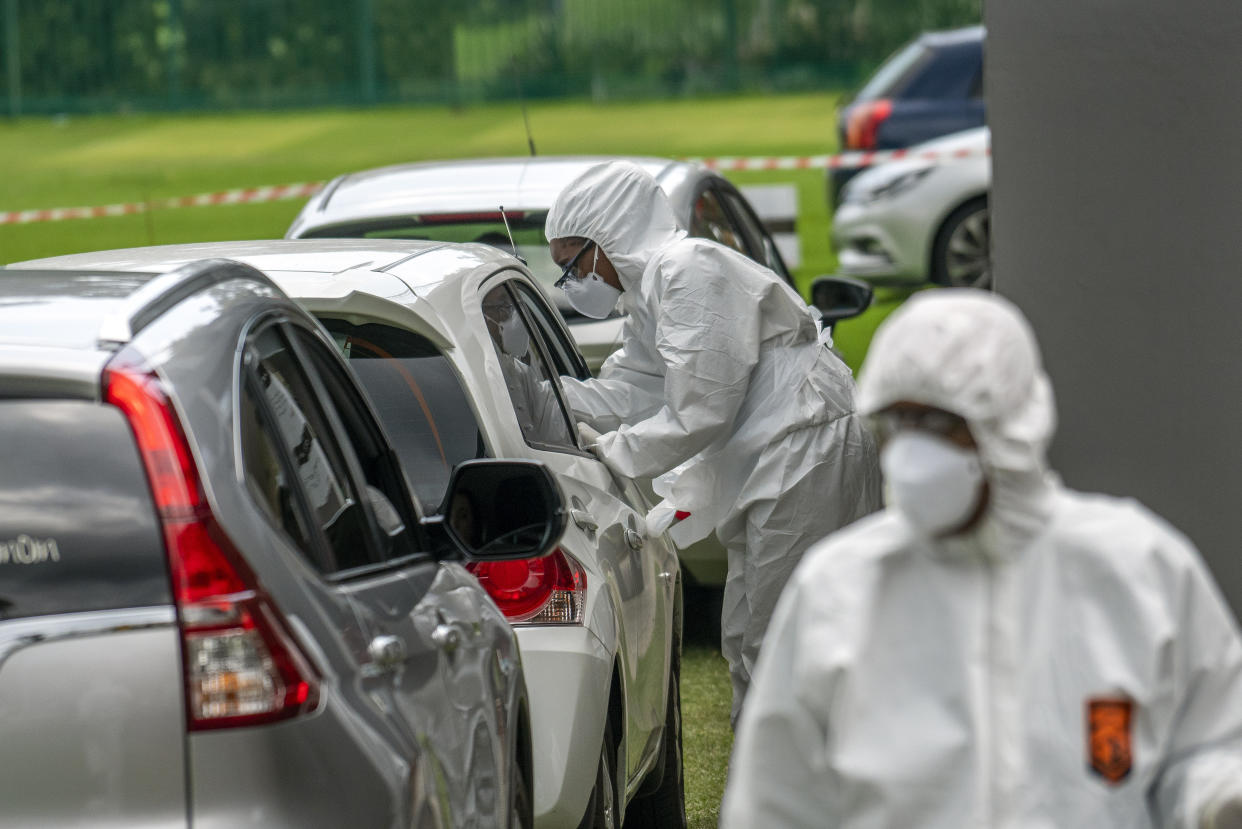Coronavirus: Global cases pass one million as death toll continues to rise

The global number of confirmed coronavirus cases has reached one million.
The outbreak has caused more than 50,000 deaths, according to data from Johns Hopkins University, while just over 200,000 people have recovered.
The true number of cases is likely to be higher than the officially reported number, however, with some countries testing en masse while others concentrate on smaller samples.
The US is the worst affected country, with more than 236,000 confirmed cases, followed by Europe’s worst hit country, Italy, with more than 110,000 confirmed cases.
Spain has moved level with the latter, reporting more than 110,000 infections, and China, where officials say they have drastically quashed the virus’s spread, reported over 82,000 cases since it first broke out in Wuhan.
Italy has recorded the most deaths related to COVID-19.
The UK has suffered more than 2,900 deaths and recorded over 33,000 cases.
Latest coronavirus news, updates and advice
Live: Follow all the latest updates from the UK and around the world
Fact-checker: The number of COVID-19 cases in your local area
6 charts and maps that explain how COVID-19 is spreading
The milestone arrives as countries try to stem the virus’s spread with strategies ranging from social distancing to total lockdown.
The World Health Organisation’s director general, Dr Tedros Adhanom Ghebreyesus, stressed earlier this week that it is important that hospitals can still provide essential services despite the scale of the global pandemic.
“The COVID-19 pandemic is straining health systems in many countries,” he said.
“The rapidly increasing demand on health facilities and health workers threatens to leave some health systems overstretched and unable to operate effectively.
“Previous outbreaks have demonstrated that when health systems are overwhelmed, deaths due to vaccine-preventable and treatable conditions increase dramatically.
“Even though we’re in the midst of a crisis, essential health services must continue.
“Babies are still being born, vaccines must still be delivered, and people still need life-saving treatment for a range of other diseases.”
The UK imposed restrictions to try and lower the rate of infections and ease the strain on the NHS, to prevent the health system being overwhelmed with new cases.
Even as the country tries to get to grips with the crisis, the difficulty at preventing infections was laid bare when royalty and top politicians contracted it.
Prince Charles, Boris Johnson, health secretary Matt Hancock, England’s chief medical officer Chris Whitty and the senior advisor to the prime minister, Dominic Cummings, all either tested positive for the virus or self-isolated after displaying symptoms.
Efforts to develop a vaccine continue but it will take time to develop and ensure it can be used by humans.


